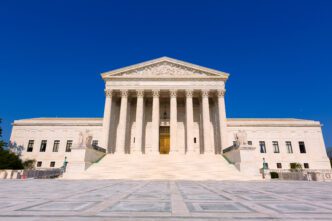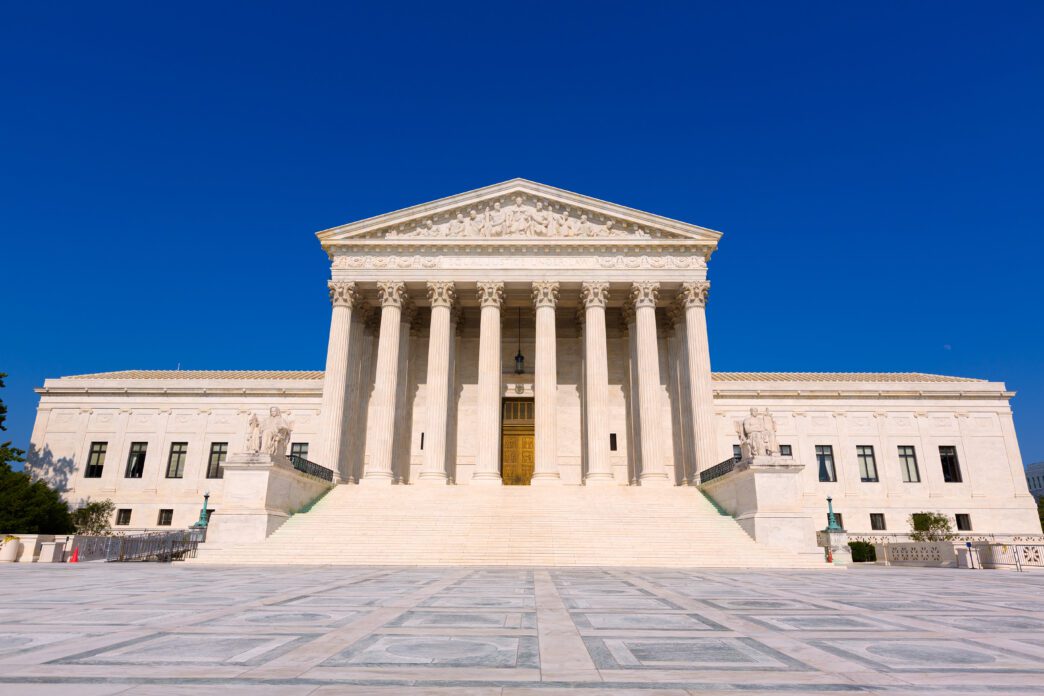Executive Summary
The Story So Far
Why This Matters
Who Thinks What?
The Supreme Court heard oral arguments on Wednesday, November 5, 2025, regarding the legality of President Donald Trump’s sweeping emergency tariffs imposed on various trading partners. This landmark case, considered the most significant economic dispute to reach the high court in years, centers on whether a 1977 law grants the president the authority to levy such tariffs under the guise of regulating imports during a declared emergency.
Legal Challenge to Presidential Authority
At the core of the dispute is President Trump’s use of the International Emergency Economic Powers Act (IEEPA), a 1977 law that grants a president unique powers to “deal with an unusual and extraordinary threat” upon declaring a national emergency. While the law states a president can “regulate… importation,” it does not explicitly specify tariffs as one of the applicable tools. Historically, presidents have invoked IEEPA primarily to sanction foreign entities or introduce embargoes, not to impose broad tariffs.
The question for the justices is whether the term “regulate” permits the imposition of tariffs. If the court rules that the law does not grant Trump this authority, the administration would need to rely on other tariff laws, which typically include limits such as caps on tariff size or other hurdles that could restrict their use as leverage in trade negotiations.
Arguments from Both Sides
Both the Trump administration and the challengers frame the appeal in existential terms. The Justice Department, represented by Solicitor General D. John Sauer, has warned that a ruling against the administration could have “catastrophic” and “ruinous” consequences for the nation’s economic health, potentially leading to a “dangerous diplomatic embarrassment.” Sauer has argued that the tariffs are necessary to address “country-killing trade deficits” and stem the flow of illicit drugs across borders.
Conversely, a coalition of small- and medium-sized businesses, along with a dozen states, has challenged the policy. They contend that the on-again-off-again tariff announcements have driven costs and uncertainty to intolerable levels, making business decisions difficult. A loss for Trump could also open the possibility of tens of billions of dollars in refunds for importers.
The “Major Questions Doctrine”
A key aspect of the case involves the “major questions doctrine,” which posits that Congress must explicitly authorize an administration to take actions involving “major” political or economic questions. The Supreme Court’s conservative majority has previously relied on this doctrine to block significant executive actions, such as President Joe Biden’s student loan forgiveness plan and his administration’s COVID-19 vaccine and testing requirement.
The businesses challenging Trump’s tariffs argue that this doctrine should apply, while the Trump administration contends it should not when a president exercises power in the context of foreign affairs.
Impact on Businesses
Among the businesses challenging the tariffs is MicroKits, a Virginia-based company founded by David Levi, which sells electronic kits. Levi stated that most of the electronic components for his kits are made in China, and the tariffs have reduced his production rate by approximately 40%. He highlighted the significant impact of uncertainty on business planning, expressing concern for the educational opportunities his kits provide if the court sides with Trump.
Other companies involved in the challenge include a New York-based wine and spirits importer and an Illinois-based educational toy company.
Key Legal Representatives
The small- and medium-sized businesses are represented by Neal Katyal, a prominent Supreme Court litigator and former acting US solicitor general in the Obama administration. Katyal has argued more than 50 cases before the high court.
Representing the Trump administration is US Solicitor General D. John Sauer, who has enjoyed significant success at the Supreme Court in recent months, including arguing the case that led to Trump receiving broad immunity from criminal prosecution.
A dozen states, including Oregon, Arizona, and New York, have also sued Trump over the emergency tariffs. Benjamin Gutman, Oregon’s top appellate lawyer, is making his Supreme Court debut arguing on behalf of these states, focusing on tariffs designed to combat fentanyl trafficking in addition to trade imbalances.
Tariff Rates and Scope
Currently, the tariff rates in question range from 10% to as high as 50% for certain countries like Brazil and India. Previously, Trump had imposed tariffs starting at 145% on Chinese goods, which have since been reduced to a minimum of 20%. The outcome of this case could significantly alter the levies charged on exports from virtually every country to the United States.
Outlook
The Supreme Court’s decision in this case is poised to redefine the scope of presidential authority in economic policy and foreign affairs, with significant implications for global trade, domestic businesses, and the interpretation of emergency powers.








